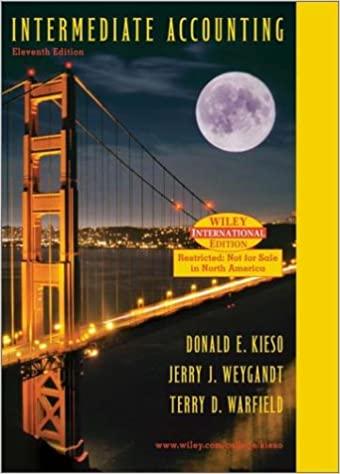Question
Can you help me solve this ,and help me top explain the detailed methodology for how we solved this problem? Thank you!! Paul and Leslie
Can you help me solve this ,and help me top explain the detailed methodology for how we solved this problem? Thank you!!
Paul and Leslie Smithson are buying a new house. They have saved for several years to accumulate a down payment and have now found a house that is just perfect for their needs. It is a beautiful three bedroom Tudor house in a quiet neighborhood in the suburbs. With the help of their real estate agent and after several rounds of offering and counter-offering, they have agreed on a price of $300,000 with the sellers. The only thing that remains to make their new home a reality is to select a mortgage. Paul and Leslie are unsure about the details of making this type of decision and have come to you for guidance because of your expertise in this area.
Paul and Leslie are both 30 years old and professionally employed. They earn generous salaries and fall into the 28% effective tax bracket on their personal income taxes. They dream long term of retiring at the age of 65 so they can travel the country to take in all its scenic beauty. It is this dream that drives them to determine a mortgage arrangement that allows them to generate the maximum retirement account balance that they can create to supplement their company sponsored retirement plans. They currently have accumulated $30,000 to use for the down payment and closing costs on their house. Any excess amount not used in this way could be used as an initial deposit in their retirement savings account. Alternatively, any excess could be used to make a down payment in excess of the minimum requirement. After studying their budget and spending patterns they have determined that they can afford $2,500/month to cover both mortgage payments and personal retirement savings. They are strongly committed to their retirement travel plans, so any of the $2,500 not spent on the mortgage will be invested in the retirement savings account. In addition, any tax savings generated through the mortgage will be deposited in the retirement account. Although they anticipate salary increases over the years until they retire, the impact of inflation and changes in lifestyle will offset these to the extent that the $2,500 per month can be considered constant over the next 35 years.
They have selected a retirement savings vehicle which involves investment in a tax sheltered mutual fund which pays an average of 9% per year compounded monthly. Paul and Leslie, with the help of an investment banker, have studied the history of this fund and are comfortable that the 9%/yr/mo average return over their 35 year retirement savings horizon is reasonable. Undoubtedly their will be ups and downs but the long term average of 9% appears to be reasonable and stable for planning purposes. Since this is a tax sheltered account, all investments will grow tax free until their retirement.
Paul and Leslie have identified four potential mortgage options. They will make their selection from among these four based on your recommendation.
Available Mortgages
Mortgage I 30 year fixed rate @ 3.58%/yr/mo, monthly payments, minimum 5% down payment, 1 point closing costs
Mortgage II 15 year fixed rate @ 3.13%/yr/mo, monthly payments, minimum 5% down payment, 1 point closing costs
Mortgage III 30 year fixed rate @ 3.08%/yr/2-weeks, bi-weekly payments, minimum 5% down payment, 1 point closing costs
Mortgage IV 15 year fixed rate @ 2.63%/yr/2-weeks, bi-weekly payments, minimum 5% down payment, 1 point closing costs
Step by Step Solution
There are 3 Steps involved in it
Step: 1

Get Instant Access to Expert-Tailored Solutions
See step-by-step solutions with expert insights and AI powered tools for academic success
Step: 2

Step: 3

Ace Your Homework with AI
Get the answers you need in no time with our AI-driven, step-by-step assistance
Get Started


